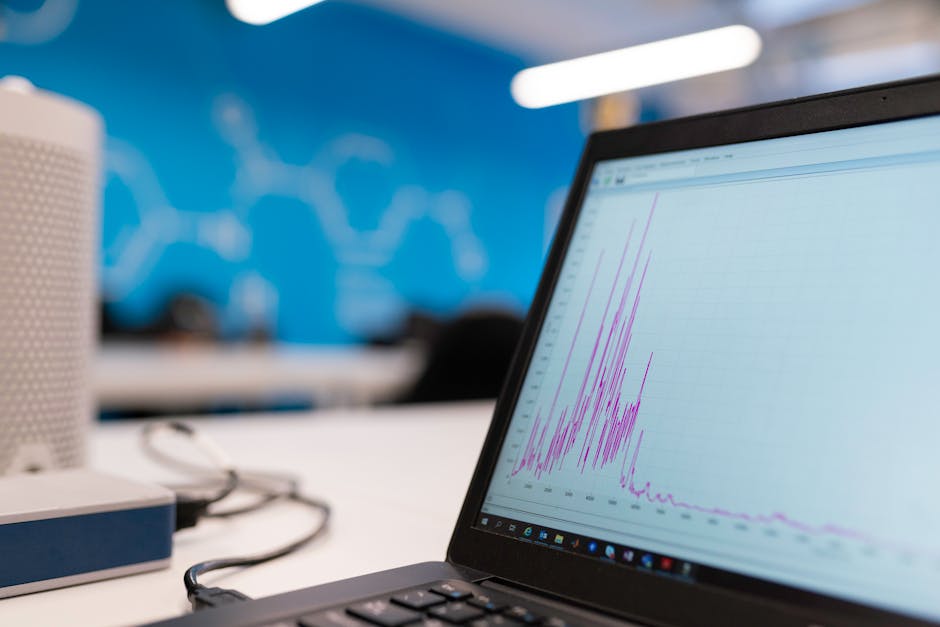Unlocking the Power of Workplace Data: Essential Metrics for Office Success
"In today's dynamic work environment, leveraging workplace data and office metrics is crucial for optimizing space utilization, enhancing employee experience, and making informed decisions. This article explores the essential metrics every office manager should track and analyze to unlock the full potential of their workspace. "

In the era of data-driven decision making, workplace data and office metrics have become indispensable tools for optimizing workspace management and enhancing employee productivity. By tracking and analyzing key metrics, organizations can gain valuable insights into space utilization, employee behavior, and overall office performance.

Why Workplace Data Matters
Workplace data provides a comprehensive view of how your office space is being used and how employees are interacting with their environment. By leveraging this data, you can:
- Identify underutilized spaces and optimize floor plans
- Enhance employee experience and satisfaction
- Reduce real estate costs and improve operational efficiency
- Make data-driven decisions for future workplace strategies
Essential Office Metrics to Track
To unlock the full potential of your workplace data, here are the key metrics you should focus on:
1. Space Utilization
Monitoring space utilization helps you understand how efficiently your office space is being used. Track metrics such as:
- Occupancy rates for desks, meeting rooms, and collaborative spaces
- Peak and average utilization times
- Underutilized areas and potential for space consolidation
By analyzing space utilization data, you can make informed decisions about office neighborhoods exploring their functionality and benefits for your company and optimize your floor plans accordingly.
2. Employee Presence and Mobility
Understanding employee presence and mobility patterns is crucial for creating a productive and engaging work environment. Monitor metrics like:
- Daily and weekly office occupancy rates
- Employee check-in and check-out times
- Desk and room booking trends

This data can help you identify peak hours, plan for adequate staffing, and ensure that employees have access to the resources they need.
3. Meeting Room Usage
Meeting rooms are often in high demand, making it essential to track their usage and efficiency. Analyze metrics such as:
- Meeting room occupancy rates
- Average meeting duration
- No-show rates and cancellations
By optimizing meeting room usage, you can reduce wasted space, improve collaboration, and enhance the overall meeting experience. Consider implementing digital meeting conference room signage to streamline room bookings and provide real-time availability information.
4. Visitor Management
Tracking visitor data is essential for maintaining security, compliance, and a positive visitor experience. Monitor metrics like:
- Number of visitors per day/week/month
- Purpose of visits (meetings, interviews, deliveries)
- Average visitor duration

By analyzing visitor data, you can optimize reception staffing, improve security protocols, and ensure a seamless visitor experience. Explore different office visitor types to tailor your visitor management strategies accordingly.
Leveraging Workplace Data for Success
To make the most of your workplace data, consider the following best practices:
- Invest in reliable data collection tools and sensors
- Integrate data from various sources (e.g., room booking systems, access control, IoT devices)
- Use data visualization tools to present insights in a clear and actionable format
- Regularly review and analyze metrics to identify trends and areas for improvement
- Collaborate with cross-functional teams to implement data-driven workplace strategies

By embracing workplace data and leveraging key office metrics, you can create a more efficient, productive, and employee-centric work environment. Start tracking and analyzing your workplace data today to unlock the full potential of your office space.
Want to learn more about Workplace Analytics?
Explore our complete guide with more articles like this one.


